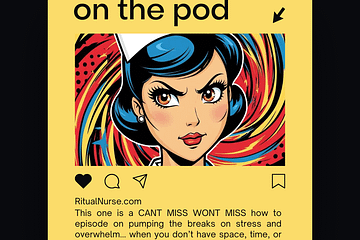Birthday Special, The List Episode, and Dopamine

Cognitive overload is silently destroying healthcare professionals, particularly nurses who juggle clinical responsibilities with personal demands. The pressure to remember every detail – from medication schedules to family commitments – creates a mental burden that manifests as burnout, decreased compassion, and physical symptoms including insomnia and digestive issues. This overwhelming mental load isn’t just uncomfortable; it’s unsustainable and potentially dangerous for both caregivers and patients.
The science confirms what many already feel: our brains aren’t designed to hold infinite tasks simultaneously. Research demonstrates that cognitive overload directly contributes to emotional exhaustion and reduced resilience. When our prefrontal cortex becomes overwhelmed with too many “open tabs,” our critical thinking abilities suffer. We become reactive rather than responsive, finding ourselves trapped in a cycle where increased overwhelm leads to heightened perfectionism – a desperate attempt to maintain control as everything spirals.
The solution isn’t working harder or becoming more organized through sheer willpower. Traditional productivity systems often fail healthcare professionals because they require additional mental energy to maintain – precisely what’s already depleted. Instead, effective cognitive offloading requires a system that reduces decision fatigue rather than adding to it. This means creating a ritual-based approach that doesn’t demand perfection but supports progress through predictable structure and honest prioritization.
The four-category system – Yes (24-hour tasks), Next (48-72 hour tasks), Pass (delegation opportunities), and Goodbye (items to release) – provides the framework many overwhelmed professionals need. By categorizing tasks according to urgency and necessity, this approach activates the dorsolateral prefrontal cortex, responsible for executive function and planning. More importantly, it creates psychological safety through predictable control, one of the key elements of resilience. The ritual of organizing tasks into these categories becomes more than productivity – it becomes self-care.
Perhaps the most transformative categories are Pass and Goodbye, which challenge the martyr mentality common among healthcare professionals. Learning to delegate appropriate tasks and completely release others that don’t serve you creates immediate mental space. This boundary-setting practice may feel uncomfortable initially but becomes easier with regular practice. The four-category system doesn’t just manage tasks – it reshapes your relationship with productivity itself, prioritizing progress over perfection and wellbeing over workload.
For healthcare professionals caught in the overwhelm cycle, implementing this cognitive offloading ritual can be revolutionary. Each morning (or whenever planning works best), reviewing and organizing tasks into these categories creates immediate calm. The system’s rolling nature ensures nothing falls through cracks – Yes tasks get completed, Next tasks shift forward when needed, while Pass and Goodbye items create progressive mental freedom. This isn’t about doing more; it’s about doing what truly matters and gracefully releasing the rest.


